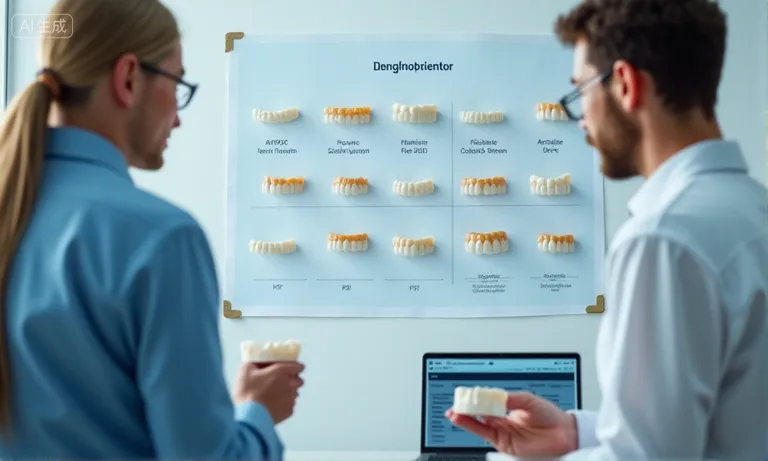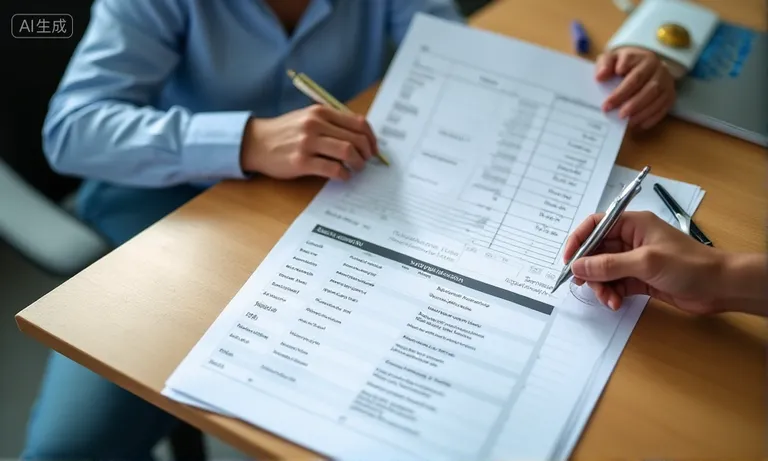Outsourcing full arch implant work to dental labs offers buyers clear financial and strategic advantages. By shifting away from costly in-house setups, buyers can avoid capital expenses, reduce labor costs, and eliminate overhead while accessing economies of scale. The result is lower total costs and more predictable budgets for large implant cases.
Key considerations include:
- Direct cost savings – eliminating equipment investment, lowering labor expenses, and reducing overhead tied to facilities and materials.
- Workflow efficiency – gaining faster turnaround, digital compatibility, and fewer remakes, while scaling production capacity during peak demand.
- Strategic value – accessing advanced technology, specialized expertise, and freeing teams to focus on patient care and business growth.
- Buyer due diligence – evaluating transparent pricing, verifying certifications, and ensuring labs provide broad service support.
For procurement teams, the real benefit lies not only in reducing upfront costs but also in building scalable, long-term partnerships with outsourcing labs. This balance of cost-effectiveness, quality assurance, and workflow integration helps secure sustainable savings and reliable outcomes in full arch implant restorations.
Why Are Full Arch Implant Restorations So Expensive?
Full arch implant restorations are expensive because they combine high-cost materials, advanced design requirements, and significant overhead investments in equipment and operations. These costs accumulate not only from the visible framework and prosthetics but also from hidden capital and logistical expenses that clinics may overlook. Understanding these cost drivers helps buyers see why outsourcing often becomes an attractive alternative.
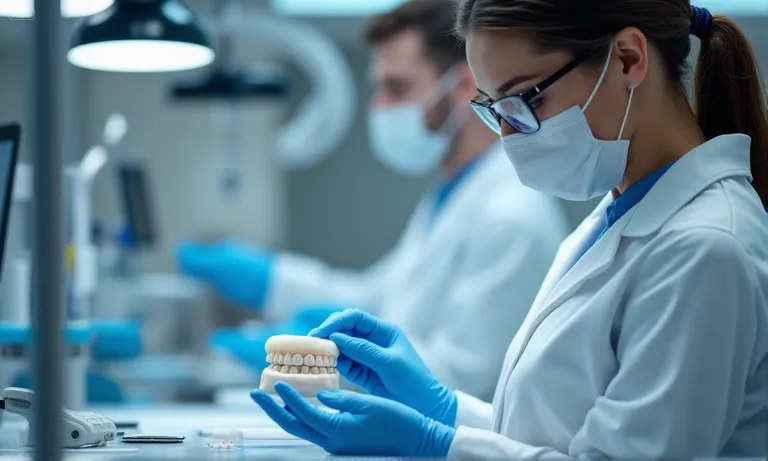
full-arch-implant-restoration-cost-factors
Why Do Materials Like Zirconia, PFM, and Titanium Drive Up Costs?
High-performance materials such as zirconia, porcelain-fused-to-metal (PFM), and titanium are essential for durability and esthetics in full arch cases. However, they are also expensive to source, process, and mill. Zirconia blocks and titanium bars often come with import costs, strict handling requirements, and waste during milling.
- Zirconia discs cost significantly more than standard ceramics and require advanced milling tools.
- Titanium frameworks demand precise machining, often using five-axis milling centers.
- PFM requires both metal casting and ceramic layering, doubling labor time.
These material-related costs directly impact unit pricing and are one of the largest drivers of overall case expenses.
Why Is Full Arch Design and In-House Production So Complex?
Full arch restorations involve intricate design processes that go beyond standard single-unit crowns. Clinics producing in-house must manage CAD/CAM workflows, scanning, design validation, and multi-material layering. Each of these steps requires specialized software and skilled technicians.
- Digital design requires precise alignment of implant positions and bite registration.
- Framework production demands error-free CAM processes to ensure fit.
- In-house labs often need redundant staff and equipment to minimize risk of remake.
The complexity of these workflows leads to higher internal costs when clinics try to handle cases independently.
What Hidden Costs Come from Capital Expenses, Overhead, and Logistics?
Beyond visible material and labor costs, hidden expenses often accumulate in full arch cases:
| Cost Category | Examples | Impact on Clinics |
|---|---|---|
| Capital Investment | Milling machines, sintering furnaces, 3D printers | High upfront spending, long payback cycles |
| Overhead | Facility rent, utilities, technician training | Ongoing financial burden regardless of case volume |
| Logistics | Material shipping, inventory stocking, import duties | Additional delays and variable expenses |
Many smaller clinics underestimate these hidden costs, leading to an inaccurate sense of “savings” when trying to produce in-house. In reality, these expenses can erode margins and create operational risks.
Full arch implant restorations are therefore expensive because they combine premium materials, high technical complexity, and layered overhead costs. Clinics often realize that without strategic outsourcing, these financial and logistical burdens can limit their ability to scale. As an overseas dental lab partner, Raytops has seen buyers turn to outsourcing after struggling with in-house investments that did not deliver the expected cost efficiency.
How Does Outsourcing to a Dental Lab Help Lower Costs?
Outsourcing to a dental lab helps buyers lower costs by removing the burden of capital investments, reducing labor expenses, leveraging economies of scale, and minimizing ongoing overhead. Instead of carrying the full weight of infrastructure and staffing, clinics can align with specialized partners who already operate efficient production workflows.
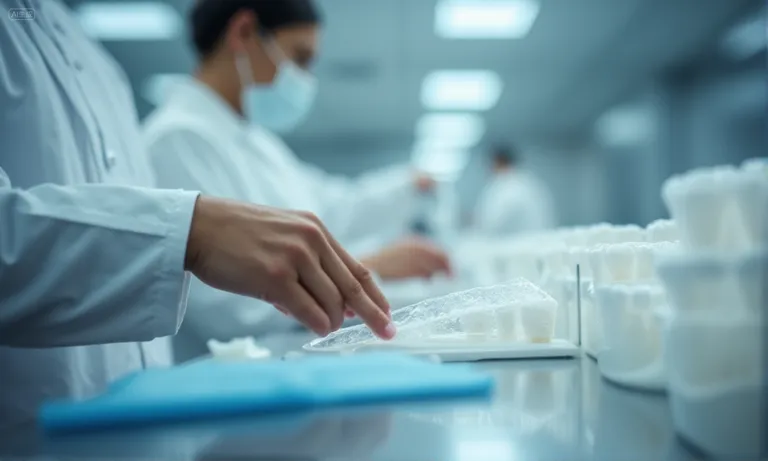
dental-lab-outsourcing-lower-costs
How Does Outsourcing Eliminate Capital Investment in Equipment and Maintenance?
Dental milling machines, sintering furnaces, and 3D printers require large upfront investment and continuous upkeep. By outsourcing, clinics avoid these purchases and the associated maintenance cycles. Partner labs already bear these expenses and distribute them across multiple clients, lowering the financial entry barrier.
How Do Lower Labor Costs Reduce Financial Burden?
Hiring and training skilled dental technicians for full arch work is costly. Outsourcing allows clinics to bypass these recurring expenses:
- No need for full-time salaries, benefits, or staff training.
- Reduced risk of turnover disrupting case flow.
- Access to skilled specialists without long-term employment commitments.
This shift converts fixed labor costs into flexible, per-case spending.
How Can Bulk Orders and Economies of Scale Reduce Unit Cost?
Outsourcing partners process high volumes of cases, which drives efficiency and lowers per-unit costs compared to in-house production.
| Cost Driver | In-House Model | Outsourcing Model |
|---|---|---|
| Unit Material Cost | Higher due to small orders | Lower from bulk purchasing |
| Production Efficiency | Limited to small teams | Optimized through scale |
| Waste & Remakes | More frequent, costlier | Reduced through standardized QA |
This scaling effect often results in 10–20% lower unit costs for full arch frameworks.
How Does Outsourcing Cut Overhead from Space, Utilities, and Materials Inventory?
Overhead costs accumulate when clinics maintain their own production areas. Outsourcing reduces or removes:
- Space allocation for milling and storage.
- Utility bills for powering high-consumption equipment.
- Inventory management of zirconia blocks, titanium bars, or ceramics.
Each reduction directly decreases the clinic’s ongoing monthly expenses, making outsourcing more cost predictable.
Outsourcing therefore lowers costs across capital, labor, scale, and overhead. Buyers gain the financial flexibility to reinvest in patient-facing services rather than production infrastructure. As a global dental lab partner, Raytops has supported clinics and DSOs that redirected savings into patient care improvements once they offloaded the heavy investment of in-house manufacturing.
What Workflow Advantages Come from Outsourcing Full Arch Cases?
Outsourcing full arch cases offers workflow advantages by ensuring digital compatibility, access to advanced expertise, scalable production during peak demand, and faster cross-border turnaround. These benefits allow clinics and DSOs to operate with greater efficiency and predictability in complex restorative cases.
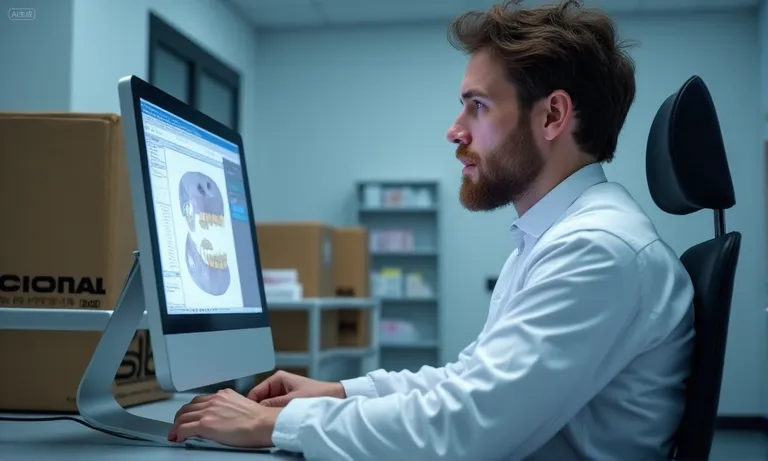
outsourcing-digital-workflow-advantages
How Does Digital Workflow Compatibility (CAD/CAM, STL) Improve Collaboration?
Digital workflows remove many of the inefficiencies of traditional impressions. Outsourcing labs that accept STL, CAD/CAM, or intraoral scan data integrate directly into the clinic’s digital ecosystem.
- Faster file transfer instead of physical shipping.
- Seamless communication through design feedback loops.
- Compatibility across multiple scanner brands and design platforms.
This compatibility improves accuracy and reduces delays caused by re-scanning or data conversion issues.
What Specialized Expertise and Advanced Technology Become Accessible?
Outsourcing gives clinics access to niche expertise that is difficult to replicate in-house. Overseas dental labs often operate with five-axis milling centers, 3D metal printing, and high-end sintering furnaces. Skilled technicians familiar with full arch cases can resolve margin discrepancies, occlusal challenges, and esthetic demands.
By partnering, clinics avoid the learning curve and benefit immediately from specialized resources. This access is especially valuable for clinics scaling implant services without overextending staff training.
How Does Outsourcing Improve Scalability and Peak-Demand Handling?
Scaling in-house operations is difficult when patient demand spikes. Outsourcing enables clinics to expand capacity quickly without overinvesting.
- Cases can be routed to lab partners during busy seasons.
- Labs allocate teams and equipment flexibly across clients.
- Clinics avoid bottlenecks in high-demand months while maintaining steady patient flow.
This flexibility prevents delays and protects the patient experience during unpredictable workload surges.
Why Is Cross-Border Outsourcing Often Faster in Turnaround?
While local labs may seem closer, cross-border outsourcing can deliver faster results thanks to optimized logistics and standardized processes.
| Factor | Local In-House / Nearby Lab | Overseas Outsourcing Partner |
|---|---|---|
| Case Volume Handling | Limited by staff and equipment | High throughput capacity |
| Shipping & Logistics | Local courier, often fragmented | Streamlined bulk shipments with customs integration |
| Turnaround Predictability | Variable with local schedules | Consistent delivery timelines |
In practice, outsourcing often shortens the overall timeline by removing bottlenecks in design and production, even with shipping involved.
Outsourcing full arch cases therefore strengthens workflow efficiency through digital integration, specialized expertise, scalability, and reliable turnaround. Clinics we have supported as an overseas dental lab partner often highlight how outsourcing streamlined their daily operations and reduced stress during high-demand periods.
What Case Evidence Shows Cost Savings in Outsourcing Full Arch Implants?
Case evidence shows that outsourcing full arch implants leads to measurable cost savings through reduced framework expenses, lower remake rates, and stronger ROI compared to in-house production. Real-world examples demonstrate how clinics and DSOs improve margins while maintaining quality.

dental-lab-outsourcing-case-savings
What Real-World Examples Show Savings on Full Arch Frameworks?
In Brisbane, an independent dental clinic outsourcing zirconia full arch frameworks reported a 25% cost reduction compared with its previous in-house production. The clinic avoided purchasing additional milling equipment and leveraged the lab’s bulk material sourcing. In another case, a DSO in California shifted 40% of its full arch cases to an overseas dental lab and cut annual capital expenditures by over $100,000.
These examples highlight that outsourcing savings are not theoretical but practical results achieved by different types of buyers.
How Do Outsourced Labs Help Reduce Remake Rates and Adjustments?
One of the hidden costs in full arch cases is remakes and chairside adjustments. Outsourcing labs with strong QA protocols often reduce these risks:
- Consistency from digital file handling to milling.
- Multi-stage quality checks before shipment.
- Reduced chairside adjustment time for clinicians.
For example, a European distributor reported remake rates falling from 12% in local production to under 5% after outsourcing. Lower remake frequency translates directly into fewer wasted hours and less material loss.
What Does the ROI of Outsourcing Look Like Compared to In-House Production?
ROI comparisons consistently favor outsourcing, especially for smaller or mid-sized clinics.
| Factor | In-House Production | Outsourcing Model |
|---|---|---|
| Capital Investment | $150k–$250k upfront | None required |
| Labor Costs | Full-time technicians, benefits | Per-case flexible fees |
| Remake Rates | 8–12% typical | 3–5% with QA |
| Average Case Margin | Narrow due to overhead | Wider due to cost efficiency |
These figures show why many buyers choose outsourcing as a sustainable business model rather than a temporary cost-cutting tactic.
Case evidence proves that outsourcing delivers both financial and operational savings. Clinics, DSOs, and distributors working with global dental lab partners like Raytops often emphasize how reduced remake rates and capital avoidance improved their long-term ROI, creating stronger confidence in cross-border collaboration.
How to Evaluate and Select the Right Outsourcing Dental Lab?
Selecting the right outsourcing dental lab requires balancing cost, quality, workflow efficiency, transparent pricing, and long-term reliability. Buyers should look beyond price alone and focus on partner credibility, certifications, and collaboration strength to ensure consistent outcomes.

evaluating-outsourcing-dental-lab-partner
How to Balance Cost-Effectiveness, Quality Assurance, and Workflow Efficiency?
A successful outsourcing partnership requires more than low prices. Buyers should compare multiple labs across three key dimensions:
| Criteria | Why It Matters | What to Check |
|---|---|---|
| Cost-Effectiveness | Sustainable margins | Unit pricing, volume discounts |
| Quality Assurance | Reduced remakes and errors | QA protocols, remake policies |
| Workflow Efficiency | Seamless collaboration | Digital compatibility, turnaround time |
Balancing these elements helps buyers avoid short-term cost traps that compromise long-term quality.
How Can Buyers Verify Transparent Pricing and Service Scope?
Transparent pricing ensures there are no unexpected charges or hidden fees. Buyers should confirm:
- Clear itemized price lists with case types.
- Defined scope of services (e.g., design, finishing, shipping).
- Transparent shipping and remake policies.
This clarity builds trust and prevents disputes during collaboration.
Why Do Certifications, Compliance, and QA Policies Matter?
Certifications and compliance standards reflect a lab’s commitment to consistent quality and safety. Buyers should verify international ISO standards, local regulatory approvals, and documented QA policies. Labs that follow structured compliance reduce risks of remakes and cross-border disputes.
How Do You Build Reliable Long-Term Outsourcing Partnerships?
Strong partnerships come from structured communication and mutual accountability:
- Start with a pilot or trial phase to test consistency.
- Set clear service-level agreements (SLAs) for turnaround and quality.
- Establish routine review calls to discuss performance.
- Scale gradually from small orders to larger volumes.
This step-by-step approach ensures that collaboration matures into a reliable partnership.
Choosing the right outsourcing lab is about aligning cost, quality, and workflow needs with long-term trust. Clinics and DSOs working with overseas dental labs such as Raytops have highlighted that structured onboarding and transparent pricing built confidence from the very first trial phase.
Conclusion
Outsourcing full arch implant restorations allows clinics and DSOs to lower costs, streamline workflows, and scale without heavy capital burdens. Real-world cases show consistent savings through reduced remakes, access to advanced technology, and predictable turnaround times. Beyond cost efficiency, outsourcing provides buyers with long-term stability and collaboration that in-house production often cannot match. For decision makers, the key is finding a trusted overseas dental lab partner who can balance quality assurance with transparent pricing. By working with experienced collaborators such as Raytops, buyers gain not just lower expenses, but a reliable path to sustainable growth in implant dentistry.
